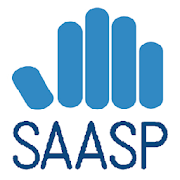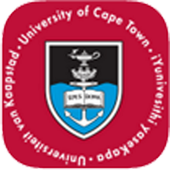Appenberg Digital Publishing Apps
Medicines Information Centre 1.0.0
The Medicines Information Centre (MIC) isaDrug Information Service for Health Professionals providedbyspecially trained pharmacists. It is an independentorganisationsituated in the Division of Clinical Pharmacology,Department ofMedicine at the University of Cape Town’s Faculty ofHealthSciences. This service is limited to health professionalsonly.The MIC is dedicated to providing unbiased, up-to-dateandwell-researched drug information, in consultation withamultidisciplinary healthcare team. To ensure this, we haveaccessto the latest information databases as well as to consultantsfromthe University of Cape Town’s Faculty of Health Sciences andGrooteSchuur Hospital. In order to sustain a service of thehigheststandard, complicated queries are discussed at regular peerreviewmeetings.Our mission statementTo research and provide information and expert assistance onallmatters pertaining to the rational use of medicines inSouthernAfrica, thereby promoting the health of its people.The services we offerDrug Information in Response to Queries fromHealthProfessionalsThe Medicines Information Centre provides informationontelephonic, faxed or e-mailed queries relating to:Drug TherapyDrugs in Pregnancy and LactationMalaria Prophylaxis and TreatmentDrugs in PorphyriaAdverse Drug ReactionsPharmaceuticsPharmacologyAvailability of South African and overseas medicinesDrug InteractionsPsychopharmacologyPharmacokineticsTeaching and EducationEducation of health care professionals by disseminationofmonthly newsletters via e-mail and on the websitePresentation of Clinical Pharmacology and AppliedTherapeuticslectures and seminarsTeaching of pharmacist interns and pharmacy and medical studentsinthe provision of drug informationFee for Service ActivitiesReports and literature searches: expert reports andliteraturesearches (hourly rate)Training: training courses in drug information which are tailoredtothe needs of the person(s) being tutoredUsers of our ServicesThe Medicines Information Centre provides druginformationto:Health ProfessionalsThe Pharmaceutical IndustryThe Medicines Control CouncilPublic and Private Health Policy MakersMedical Aid Schemes and Managed Health Care CompaniesAcademic Health DepartmentsPrivate and Public Hospital AdministratorsAvailable ResourcesThe Medicines Information Centre is dedicated toprovidingunbiased, up-to-date and well researched drug information.Toensure this we use:Latest editions of reference booksNational and international medical and pharmaceuticaljournalsAbstracting journals e.g. ReactionsCD-ROM – MicromedexMedlineThe Cochrane LibraryThe InternetPackage InsertsPharmaceutical IndustryIn-house computerised literature database (MIDAS)Consultants from the University of Cape Town’s Faculty ofHealthSciences and Groote Schuur HospitalDaily peer review and clinical meetings
SA HIV Clin Soc Adult Guide
Southern Africa HIV Clinicians Society: AdultAntiretroviral Therapy Guidelines 2014These guidelines are intended as an update to those published inthe Southern African Journal of HIV Medicine in 2012. Since therelease of the previous guidelines, the scale-up of antiretroviraltherapy (ART) in southern Africa has continued. Cohort studies fromthe region show excellent clinical outcomes; however, ART is stillbeing initiated late (in advanced disease) in some patients,resulting in relatively high early mortality rates. New data onantiretroviral drugs have become available. Although currently few,there are patients in the region who are failingprotease-inhibitor-based second-line regimens. To address this,guidelines on third-line therapy have been expanded.S Afr J HIV Med 2014;15(4):121-143.
Rheumatology UCT 1.2.3
The Division of Rheumatology at the University of Cape Town is veryactively involved in teaching, service delivery and research.Teaching is directed at medical students in their 4th 5th and 6thyears of training. There is also training for post graduatesspecialising in general medicine in the form of registrar rotationsthrough Rheumatology, as well as formal teaching for the Part 1 andPart 2 of the FCP (SA) examinations. Medical registrars rotatingthrough the unit are encouraged to undertake rheumatology topicsfor the MPhil degree. The Division is highly suited for trainingsuper specialists in Rheumatology due to the wide spectrum ofrheumatic diseases that are treated in the different clinics.Service is provided through several outpatient clinics andinpatients admitted to the general medical wards as well as theorthopaedic wards. Patients with severe RA may be admitted forsurgery or for rehabilitation purposes. There are 2 new patientclinics per week and 2 follow-up clinics per week. In addition, aweekly Connective Tissue Diseases clinic has been established fortreating patients with SLE, Scleroderma, Myositis and differentforms of vasculitis, especially Takayasu’s Disease. The Division ofRheumatology has several research interests relating to differentaspects of the rheumatic diseases. Osteoporosis is an area ofinterest for many years and there is ongoing collection oflongitudinal bone mineral density data in patients with rheumatoidarthritis (RA) and systemic lupus erythematosus (SLE). Age-relatedbone loss at different skeletal sites is being prospectivelystudied in collaboration with the Department of Nuclear Medicineand the Endocrine Unit. Clinical drug trials are in progress tostudy the safety and efficacy of the newer non steroidal antiinflammatory drugs (NSAIDS), in collaboration with the GIT Unit.These newer COXIBS are being evaluated in patients with RA andosteoarthritis (OA). All of these include collaborativeparticipation with the GIT Unit, where gastropathy is an outcomevariable, measured by gastroscopy. Recently, the trials of coxibshave included cardiovascular outcomes as well. We have also beenlooking at SLE genetics in collaboration with the Hepatology Unitat UCT. Newer areas of research include the study of chronictophaceous GOUT; community aspects of diagnosing and treatingrheumatic diseases at CHC’s; early rheumatoid arthritis; geneticsof bone loss in SLE; and functional problems in ankylosingspondylitis and DMARDs in Psoriatic Arthritis. More recently, wehave been involved in studies looking at the short-term andlong-term effects of biologic therapiesin the different rheumaticdiseases, especially RA. The rheumatic diseases unit provides in-and outpatient rheumatology services for the entire Western Caperegion. Sessions are carried out at the Heideveld and KhayelitshaCommunity Health Centres 6 times a year. Training is provided on acontinuous basis for medical students, allied health professionals,a senior house officer, two rotating medical registrars and twocareer registrars. Research is largely clinically orientated, but alaboratory-based approach is being used to study the genetics ofSLE and the differentiation between flares and infection in SLEpatients. Family studies have also been started in patients withSLE and RA. In addition, there is very significant involvement inclinical drug trials in rheumatoid arthritis, systemic lupuserythematosus, psoriatic arthritis and osteoarthritis.Collaborative research is being carried out with the Liver Unit tostudy bone density in auto-immune hepatitis.











